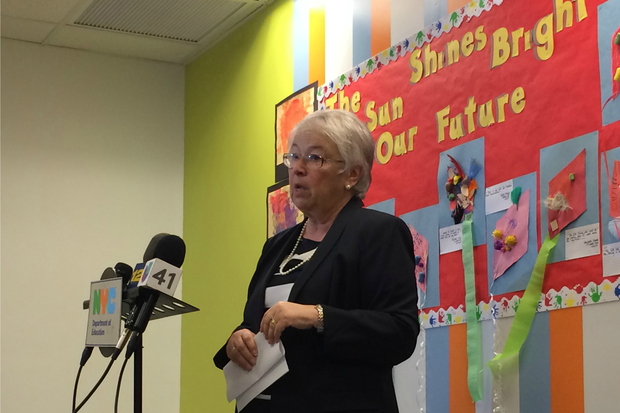School Suspensions Ruin Students’ Lives

Suspensions for low-level infractions are jeopardizing the education of many New York City children, and they must stop now.
Because the city’s public schools have, over many years, failed to invest in proactive, positive approaches to discipline, they continue to use suspensions to deal with minor infractions.
The result? Thousands of students, punished rather than properly supported, drop out of school and end up unprepared for a successful future.
If this doesn’t change under Mayor de Blasio and Chancellor Carmen Fariña, who have talked repeatedly about the need to serve all kids, it probably never will.
The use of harsh discipline has produced a culture in which we don’t help students to learn from mistakes — we just kick them out. And when we suspend students, we actually increase the likelihood of future behavior problems.
Youth suspended just once in ninth grade are twice as likely to drop out of school compared to their peers. Students who are suspended or expelled for a “discretionary action,” such as defying authority, are nearly three times more likely to have contact with the juvenile justice system.
We’re not talking here about a tiny universe of serious troublemakers, but about a sizable chunk of the student population.
According to the Department of Education, there were 53,504 suspensions in New York City during the last school year. Black students make up about 26% of the student population, but were 53% of those suspensions. Students with special needs or disabilities make up 19% of our students but were 36% of the suspensions.
And guess what? The most common reason for suspensions in New York City was “Infraction B-21: Defying or disobeying the lawful authority or directive of school personnel.”
Translation, in many cases: Talking back to a teacher or principal.
What we have here is the stop-and-frisk of school discipline policies. It might have been conceived as a neutral policy, but that’s not the way it plays out in practice. While the Department of Education Discipline Code outlines a range of nine possible responses to a B-21 infraction, far too often the response is still a suspension.
Ending this is not a new or unprecedented idea. As the body of national discipline research has grown, school systems around the country have started recognizing the logical inconsistency of pushing students who need to learn out of the schools that provide them an education.
Just last year, the Los Angeles school district — second largest in the U.S. behind New York’s — banned suspensions for “willful defiance.” Since then, suspensions have dropped 40% for black and Latino students.
What’s the better approach? Restorative justice programs that challenge students to take responsibility and make amends for their behavior, creating a safer and more positive environment for everyone in the school building. We should also roll out conflict resolution, collaborative problem-solving, peer mediation and mentoring programs.
We often are told we don’t have the resources, training or time to handle conflict and discipline in a constructive way.
And yet we do have about $200 millionto place thousands of School Safety Officers in our schools. In fact, there are more School Safety Officers in New York City schools than guidance counselors.
We all desire and need the kind of transformational change in New York City that will ensure a quality education for all of our children. Let’s stop trying to suspend our way out of the problem.
Brewster is a community coordinator at James Baldwin High School, a transfer school in Manhattan. Rubenstein is a special education teacher at a Brooklyn transfer high school. Transfer schools are for students who have previously dropped out or fallen behind in credits.
Additional Resources
 Brewster_Rubenstein_School_Suspensions_Ruin_Students_Lives
Brewster_Rubenstein_School_Suspensions_Ruin_Students_Lives
